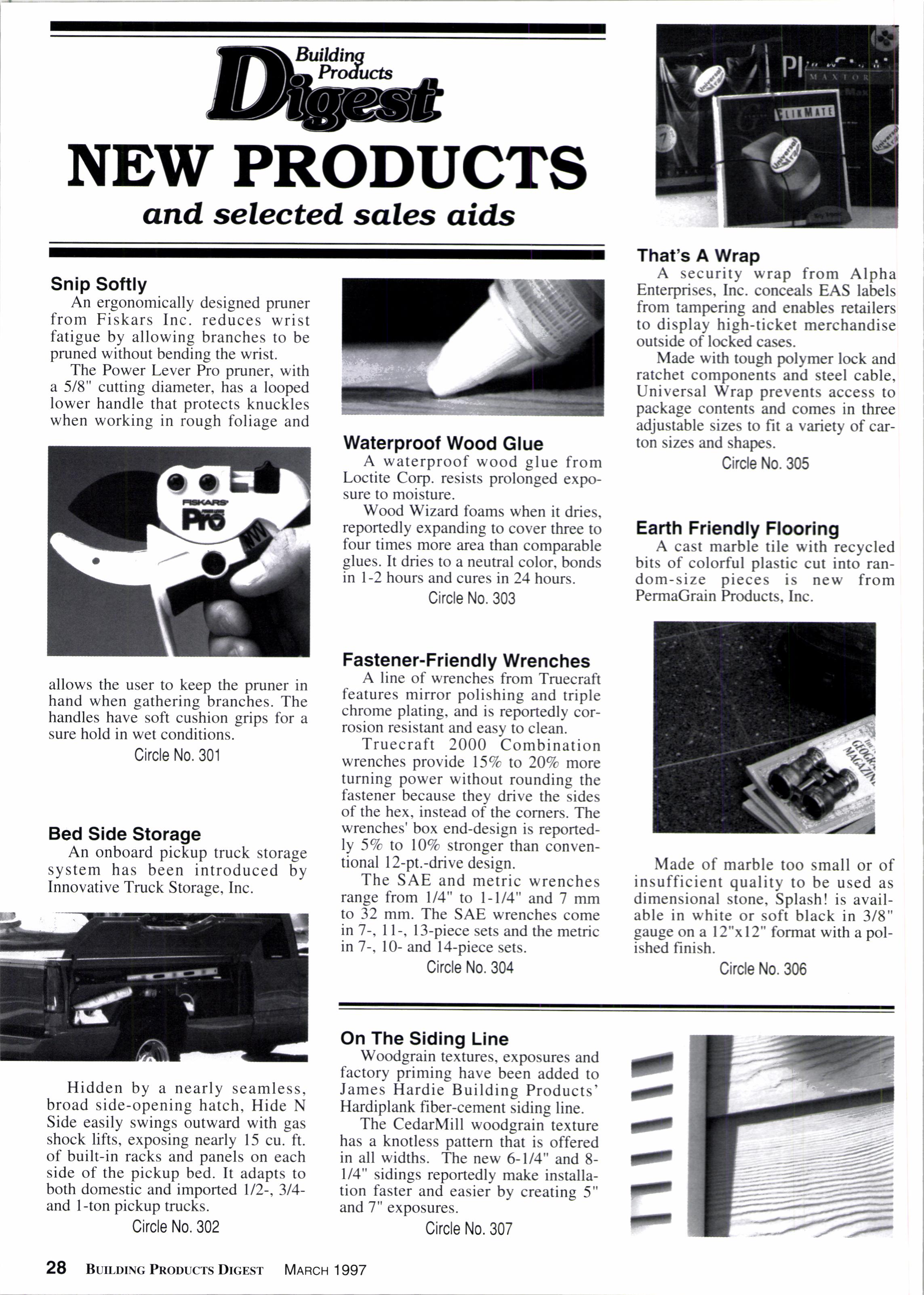
2 minute read
Wild, wild western map
EIOUND in areas ranging from I-' Southern California to British Columbia, big leaf maple (Acer Macrophyllum), also known as Pacific, western, Pacific Coast and Oregon maple, has an isolated growing area compared to hard and eastern soft maples.
Despite its limited growing area and lesser known status. it has a rather large timber supply.
The color has less variation than most hard maples and all soft maples, and there is no distinct difference between the sapwood and heartwood. The wood is pale pinkish-brown to a nearly white color.
The wood resembles cherry and birch because of is close, fine grain pattern, and it is less lustrous than rock maple.
Story at a Glance
Big leaf maple (a.k.a. western maple) has a large timber supply finishes well good for cabinets, fine furniture.
The hardwood's consistent color and medium density makes it particularly useful for manufacturing custom cabinets and fine wood furniture.
Considered easier to mill than eastern maple, its compressed strength and rigidity makes it suitable for frame construction. It is also peeled and utilized as innerplies in panels of softwood plywood.
Lower grades are used for chips for the paper industry and pallets. The species may be used in manufacturing veneer.
It also is used for producing interior joinery, piano actions, dairy and laundry equipment, sports goods, and turnery.
Although it has distinct growth rings, the rings are not considered prominent.
The heartwood is non-durable and is liable to insect attack. It is moderately resistant to preservatives, however the sapwood is considered permeable.
Big leaf maple has no worm holes and is free of stain.
More dimensionally stable than gum, beech, ash, birch or hard maple, it is moderately strong, hard and heavy with a medium density. Considered a true maple, it is not as strong or hard as southern maple. It is comparable to hard maple in average widths.
It has low stiffness and medium bending and crushing strengths.
It is not as soft as poplar, basswood, or aspen and can be handled normally without scuffing or damage. It accepts finishes and stains uniformly. The wood scores high for machinability and nails satisfactorily with care.
Available in 3/4, 4/4, 5/4,614,814, 10/4 and l2l4 thicknesses, it has random width and length, usually limited to a 10" width and 10' length. It weighs 35 lb./ft.3 with an average specific gravity of.54.
Big leaf maple has better jointing strength with glue blocks, dowels, screws or staples than red oak, poplar, silver maple, or gum.
It has a rapid early growth rate that provides saw timber size trees in 25 to 30 years on a good site. Dense stands produce lumber with straighter grain and fewer knots.
Obituaries

Emmet P. "Pap" Kelly, 91, cofounder of Emmet Vaughn Lumber Co., Knoxville, Tn., died in his sleep Jan.6.
After graduating from the University of Tennessee-Knoxville in 1926, he started his 70-year lumber career at Vestal Lumber, Knoxville, retiring in 1955 as exec. v.p. and general mgr. In 1956, he founded Emmet Vaughn Lumber Co. with his wife, Blanche "Sal" Vaughn.
He was a past president of the
Appalachian Hardwood Manufacturers and a past director of the National Hardwood Lumber Association.
C. Edward "Ed" Wright, president of J. Walter Wright Lumber Co., Bristol, Va., died Dec. 19 in Boca Raton, Fl.
A native of Mountain City, Va., he was a director of the National Hardwood Lumber Association for six years and past president of the Appalachian Hardwood Manufacturers.
John Wrenn, 90, former salesman for Tabor City Lumber Co., Tabor City, N.C., died Jan. 24 in Tabor City.
Born in Davidson County, N.C., he founded Wrenn Lumber Co., Greensboro, N.C., before joining Tabor City Lumber in the early 1950s. He retired in 1986.
E.W. "Pete" Kelly,73, co-founder of PJ Lumber Co., Mobile, Al., died Dec. l3 in Mobile.
In 1951. he co-founded B.F. Chambers Hardwood Lumber Co., Frisco City, Al., with his father-inlaw, B.F. Chambers. When Chambers retired in 1964, Kelly started E.W. Kelly Lumber Co. In 1978, he founded PJ Lumber Co. with his son Joe Kelly. He sold his interest in the company in 1983, but remained involved.
EAX to 714-852-0231,
or call (714) 852-1990 or mail to Building Products Digest, 4500 Campus Dr., Suite 480, Newport Beach, Ca.9266O-1872
Building Products Digest - March 1997

Name (Please print)









